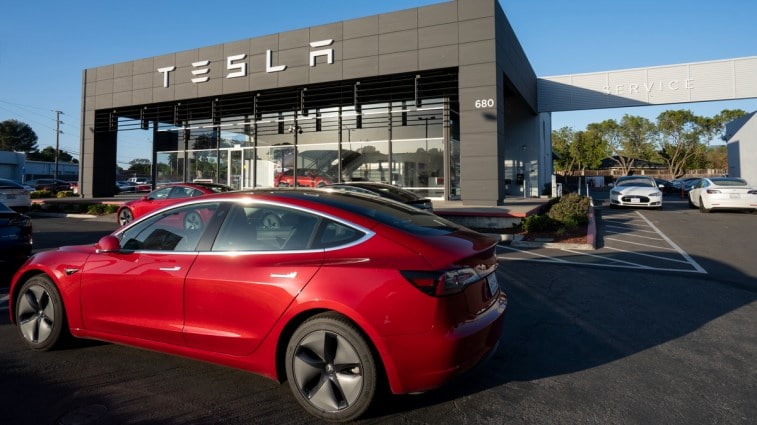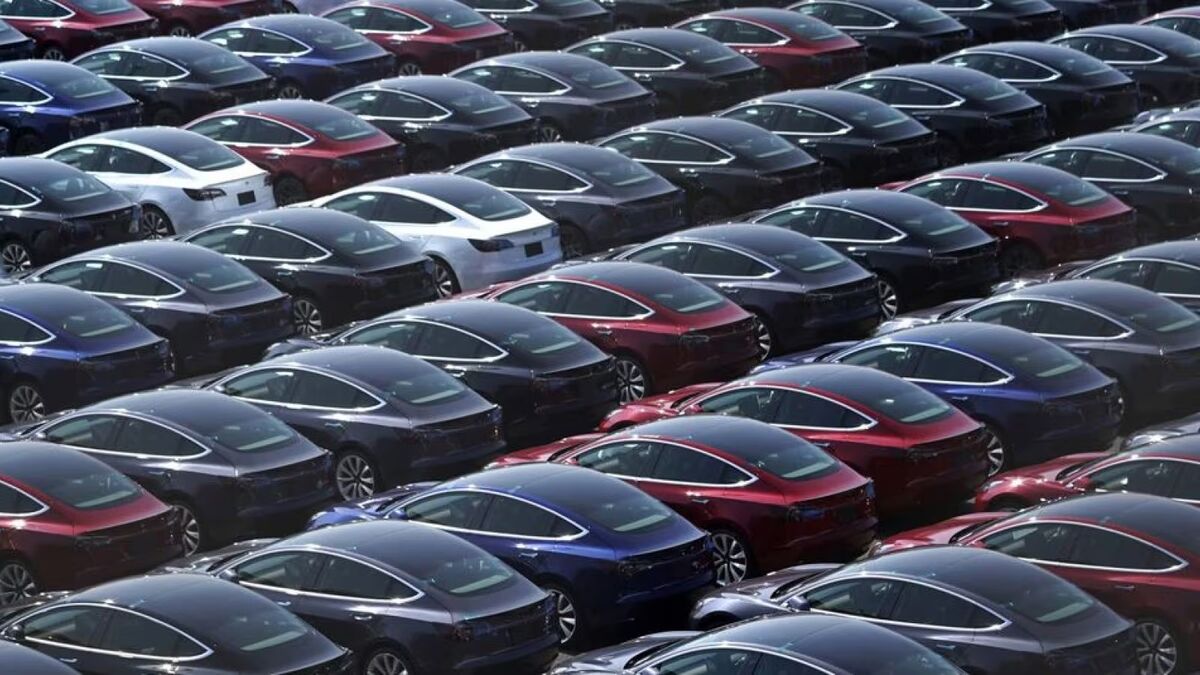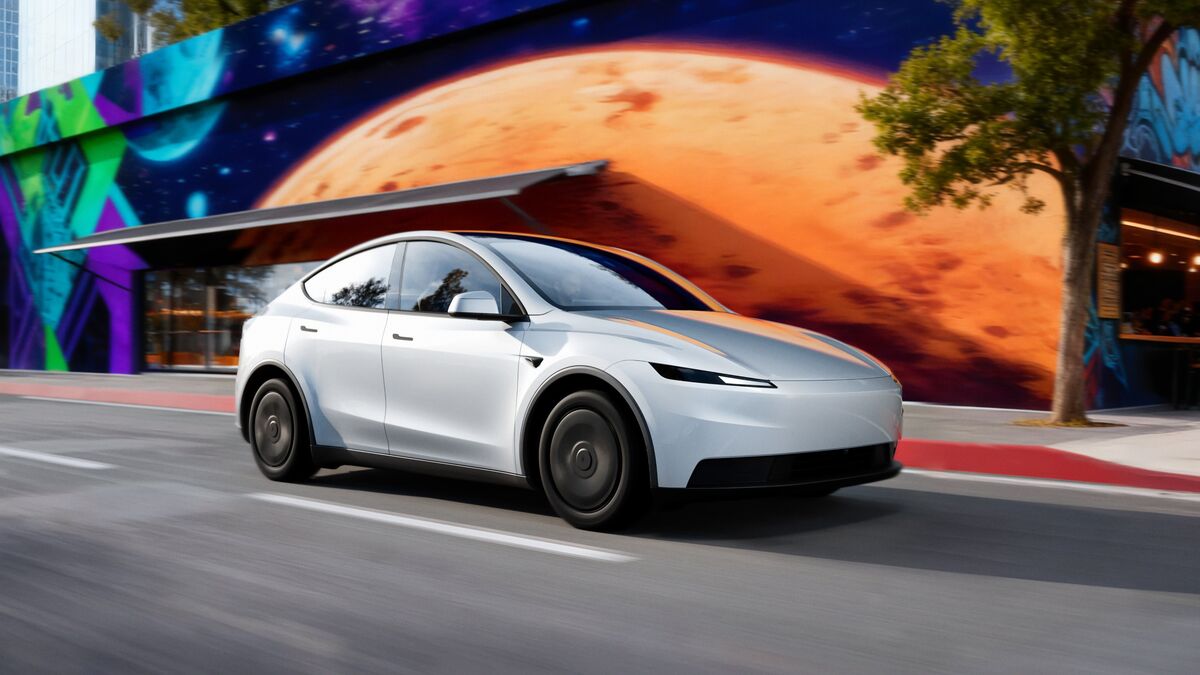
Last week, the company announced that it would start advertising.
Now, it has quietly launched a round of incentives. The discounts don’t appear when you order a new car from the factory. But the company’s website also lists some inventory of pre-built cars ready to deliver. Reuters reports that Tesla “is offering discounts of more than $1,300 on some Model 3 cars in its U.S. inventory.”
Going From Order-Only to an Inventory
The move comes after Tesla introduced incentives in Europe to clear a backlog. Tesla even shipped an oversupply of cars from China to sell in Europe.
“In the first quarter, Tesla had 15 days worth of global inventory, leaner than the industry norm but its highest in nearly three years,” Reuters notes. That’s still well below the industry average. According to Kelley Blue Book parent company Cox Automotive, America’s car dealers ended April with an average 53-day supply.
But any backlog at all is news for Tesla, which has spent much of the last two years telling customers the wait for a new car could stretch months.
Selling Cars to Sell Software
Tesla has adjusted its strategy in 2023. The automaker has cut prices dramatically for some models — most trim levels of the Model 3 now sell for less than the price of the average new car. CEO Elon Musk told investors in April that the company now aimed to sell as many cars as possible, even if each sale was not profitable, to position Tesla to sell more software downloads over time.
Tesla is just one of many automakers that plan to sell subscriptions to car features for recurring fees.
The company retains a mystique for many buyers. Kelley Blue Book research shows that many Tesla buyers never even consider a car from another automaker.
But the company’s share of the electric vehicle (EV) market has shrunk as more competitors have entered the segment. As recently as 2020, 79% of the electric cars sold in America were Tesla products. In the first quarter of 2023, that same figure was 62.4%.
Now, advertising, discounts, and a strategy shared with other automakers have the company looking a little more like its competition with each passing week.







